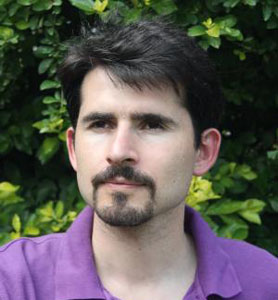תחילת דף אינטרנט, לחץ אנטר כדי לעבור לאזור תוכן מרכזי
תפריט ראשי של האתר

Dr. Pavel Goldstein (MA, PhD)
- Head of Integrative Pain (iPain) Lab / Head of Biostatistics MPH program
School of Public Health
I have completed , Master in Biostatistics and PhD in pain neuroscience. During my PhD studies, I was exposed to the field of pain research that is still overflowed with endless debates about basic questions: how we measure pain? What causes pain? How we treat pain? Completing graduate studies I found myself at the Prof. Tor Wager’s lab, leading projects with a focus on digital solutions for chronic pain. In 2019 I founded Integrative Pain Laboratory at the University of Haifa to gather novel understanding of chronic pain conditions, developing new ways of measuring, preventing and treating chronic pain.
My research is essential for more than pure knowledge. Ultimately, my future research is driven by the need to integrate between the academy and the industry. Providing data science consultations for medical device companies, academic researchers from multiple fields, and doctors helped me acquire a "common ground" between academic investigators, business representatives, and healthcare providers. When all parties see the advantage of combining the industrial drive to ‘get things done’ with clinical insights and the academic urge to ‘understand how it works’, the final outcomes improve significantly.
Despite the immense body of research dedicated to the investigation of pain, studies generally measure pain expression unidimensionally, isolating the sufferer from any relevant social contexts. However, pain is a complex phenomenon, and therefore the research of it requires new integrative perspectives. I have established iPain (Integrative Pain) lab at the School of Public Health, the University of Haifa, directing my research towards understanding the interaction between biological, psychological, and social mechanisms that underlie pain perception.
Mobile platform for chronic pain. In addition, we are developing a unique mobile platform that 1) allows patients to record and track interactions between pain, emotion, and bodily experiences; 2) delivers information about these experiences to clinicians in order to personalize prevention and treatment; 3) provides insurance companies with feedback about the status and health trajectories of patient populations. The application allows patients to report their experiences in an effortless and engaging way, and also captures patterns of speech and facial expressions, which deliver a readout of patients’ emotional and pain behaviors.
PainStory.science: pain detection based on facial expressions, voice, and language content. The main goals of the PainStory project are 1) to reduce the stigma associated with chronic pain conditions; 2) to increase general awareness about pain; 3) to create better measurements of pain than the traditional 1-10 scale commonly used in clinics. We have developed a digital platform, PainStory.science, that allows people with chronic pain to share their pain-related stories to develop a patient-centered understanding of what pain is, and what helps. Applying machine learning algorithms we are developing an automatic online pain detector based on chronic pain patients’ facial expressions, voice characteristics, and language content. Latter this pain detectors will be converted to artificial intelligence in order to help clinicians and patients to classify their pain levels. A PhD student is wanted!
Psychoeducation. Pain is very confusing: it feels in our body but produced by our brain. I realized that psychoeducation helps people better understand chronic pain conditions and some cases even to treat it by changing their perception and attitudes regarding their pain condition. Collaborating with pain therapists and life coaches we are developing educational materials about pain production, diagnosis, and treatment. In this initiative, we integrated the knowledge about chronic pain based on medical, public health and neuroscience research. A PhD student is wanted!
Psychotherapy for chronic pain. In addition, I’m promoting a novel psychotherapeutic approach for chronic pain that demonstrated a unique efficacy in our recent study. Our pain clinicians Dr. Howard Schubiner and Dr. Yoni Ashar run certified workshops for clinicians or psychotherapists who are interested in treating chronic pain. We are organizing the same workshop in Israel in December 2020. Please, ping me if you are interested!
Pain chronification. How is pain progressing into persistent pain? How we can prevent it? Early intervention plays an important role in preventing pain chronification and, as key influencers in the management of patients with acute pain. I’m analyzing the followup data of people with acute pain to understand better the risk factors of pain chronification.
My research is essential for more than pure knowledge. Ultimately, it is driven by the need to integrate between the academy and the industry. Providing data science consultations for medical device companies, academic researchers from multiple fields and doctors helped us to acquire a "common ground" between academic investigators, business representatives, and healthcare providers. When all parties see the advantage of combining the industrial drive to ‘get things done’ with the academic urge to ‘understand how it works’, the final outcomes improve significantly.
Finally, I’m intrigued to announce a new MPH track in Biostatistics at the School of Public Health that will be led by me starting the Fall of 2020. The track will be based on a novel program with the main focus on the application of computational methods designed for the analysis of health-related data. As a goal, we are planning to assist in the growth of a new generation of bio-data scientists that will get expertise in the implementation of traditional biostatistician methods and the novel data science approaches.

